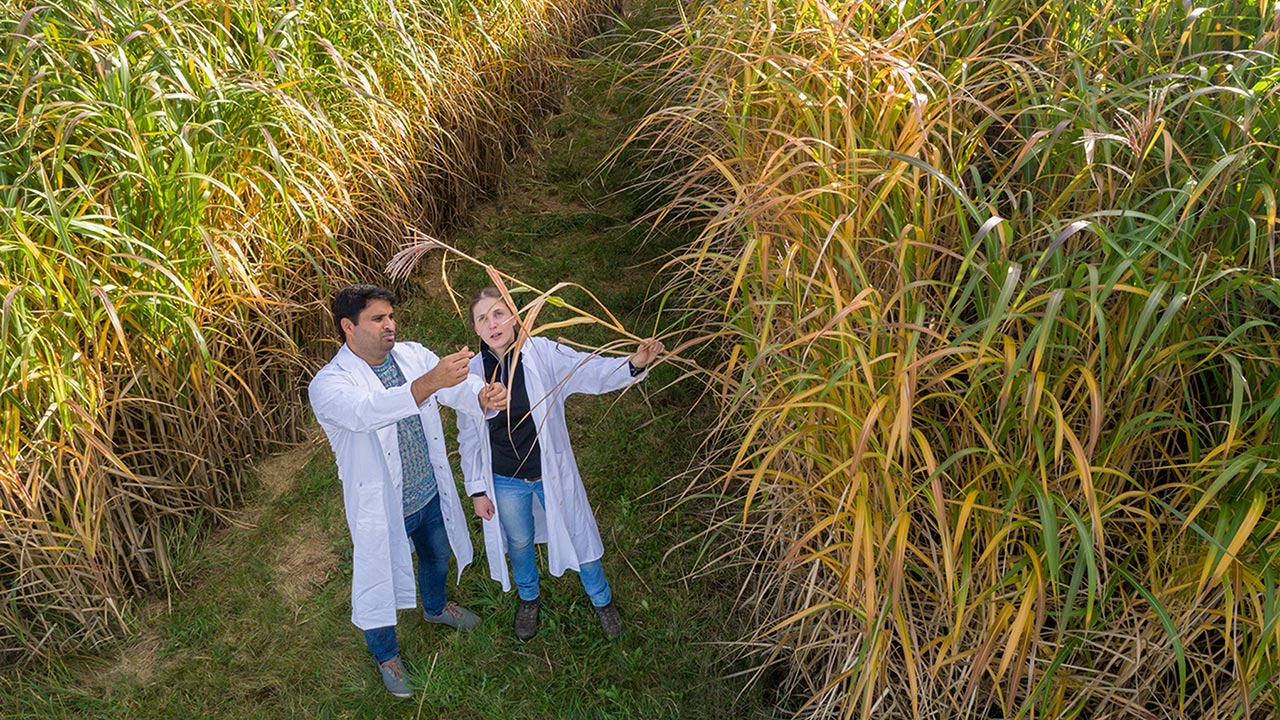Chinese reed as a climate-friendly bioethanol source
The Giant Miscanthus is intended to become a feedstock for sustainable fuel alternatives on marginal lands.

Bioethanol is a bio-based alternative to petroleum-based fuels or fuel blends. A European research network with the participation of the University of Hohenheim has developed an experimental project whose process is even supposed to be more climate-friendly than merely climate-neutral. The focus is on the giant grass Miscanthus × gigantheus and the storage of carbon dioxide (CO2).
CO2 reduction potential greater than 100%
"Combining bioethanol production with carbon capture and storage technologies could help remove carbon dioxide from the atmosphere," project coordinator Andreas Kiesel from the University of Hohenheim is convinced. "Depending on the accounting approach for biological carbon storage, a reduction potential of more than 100 % compared to the EU benchmark for fossil fuels is likely," calculates his colleague Jan Lask.
The pilot plant is to be built in Sisak, Croatia, next to an oil refinery. The refinery's former oil fields will absorb the CO2 produced during bioethanol production. "On the one hand, the refinery is located in the immediate vicinity of depleted oil deposits that can be used for CO2 storage and, according to experts, are stable in the long term for the next 1,000 years and beyond," explains Kiesel. On the other hand, there are around 60,000 hectares of former farmland in the vicinity of the plant that were abandoned during the Yugoslavian war in the 1990s.
Cultivation on marginal soils
From the outset of the joint project "Growing Advanced Industrial Crops on Marginal Lands for Biorefineries" (GRACE), it was clear that the raw materials for bioethanol should not compete with the production of food and animal feed. That's why the focus fell on miscanthus, a grass up to three meters tall that grows on marginal land - where other crops don't thrive. "This allows unused land to be cultivated again without competing with food and feed crops or other products," Lask explains.
In addition, miscanthus offers several other advantages: As a perennial plant, the grass stabilizes the soil and prevents its erosion. Once established, it also suppresses weeds, which is particularly promising at the project site. That's because the invasive plant bastard indigo is spreading there. "Large-scale cultivation of miscanthus could be an option to reduce the spread of this species," Lask says. The research project is rounded off by studying the extent to which miscanthus cultivation can be sustainable.
Term until end of 2022
GRACE started on June 1, 2017, and will run until December 31, 2022. The project is funded with 12.3 million euros by the private-public research cooperation "Bio-based Industries Joint Undertaking" between the European Union and the Bio-based Industries Consortium, an association of major bioeconomy companies. Private project partners are contributing a further 2.7 million euros.
bl


